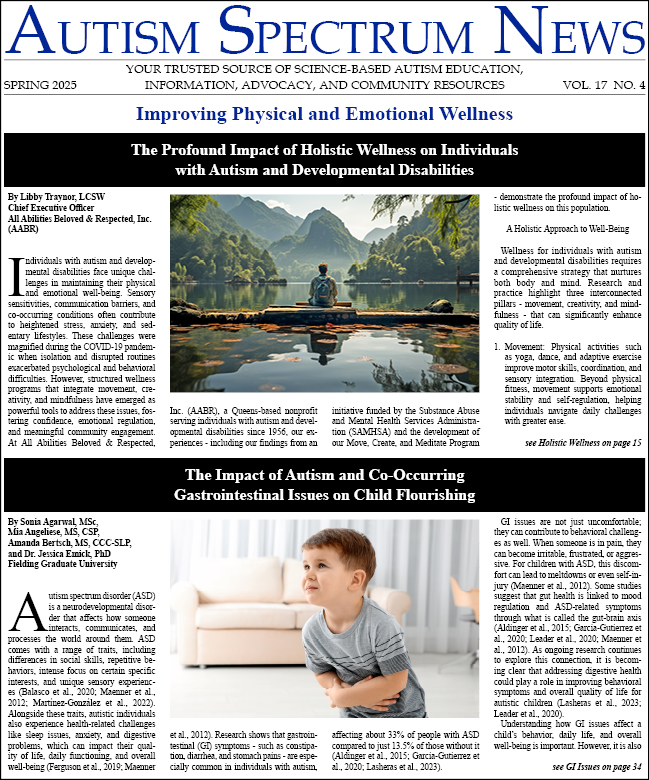-
Intimate Relationship Failures From an Autistic Perspective
The standard narrative positions autism as the cause of relationship trouble when a non-autistic person dates or falls in love with an autistic person. The autistic partner is assumed to be the disruptive or difficult one. Self-help books offer non-autistic partners tips on how to cope with their...
-
Autism and Adolescence: For Many, the Most Challenging Time of Life
It is a well-known conventional wisdom that adolescence, or the teenage years, are a difficult time of life for everybody and that this has probably been the case since time immemorial. It is equally well known in the autism community that middle school (or, as it was known in my day, junior high...
-
A Brief Guide to Discussing Intimacy and Sex in Neurodiverse Couples Therapy
Intimacy and sex are healthy, natural aspects of human relationships. Yet, this topic is often unaddressed by both therapists and couples seeking support. While differences and challenges related to intimate connections are not unique to neurodiverse couples, there are core areas of neurodiversity...
-
Neurodiverse Couples: Making Meaningful Moments of Every Day – Having a Good Morning
Many neurodiverse couples struggle with emotional connection and intimate communication. They yearn for a romantic touch, a knowing glance, a kind gesture to make them feel close. These little things make a big difference in an intimate relationship. And when these small connecting moments do not...
-
The Neurodiverse Love Relationship GPS (Gaining Perspective for Success)
Being married for 30 years and not knowing we were a neurodiverse couple until our 29th year of our marriage created a lot of “unintentional” hurt and pain for both of us. Learning we had differently wired brains helped me see our challenges and differences through a new lens, which led to...
-
What My Autism Has Taught Me About Dating and Relationships
I was diagnosed as autistic in my late forties, after a counsellor first suggested I might be autistic. Discovering I am autistic has helped me make sense of almost every aspect of my life, including my long-running unsatisfactory history of dating and relationships, up until the point I met my...
-
Why Autistic Children Struggle with Developing Friendships
What makes it difficult for children with autism to develop friendships? Children with autism often struggle with social skills and attendant social cues. This includes both conveying and interpreting social cues. Social cues are the form of communication individuals develop and utilize to assess...
-
Tips for Parents and Teachers to Support Autistic Children in Developing and Maintaining Friendships
Friendships play an important role in the lives of children and teenagers. These relationships help with childhood social and emotional development in many ways, including: managing emotions, responding to the feelings of others, listening, problem solving, navigating conflicts, sharing and...
-
Marriage Proposal Carries Consequences
Jayson Valles recalls the first time he saw Cecilia Primera. That was 12 years ago during AHRC New York City’s Sunday Trip program for individuals with intellectual and developmental disabilities. He knew immediately that Cecilia was different than other women. He introduced himself to her and...
-
Recognizing and Understanding Neurodiversity in Couples
Many couples come to the realization they are in a neurodiverse relationship decades into their relationship, after listening to a podcast, reading a book, or watching a movie that includes an autistic character. But recognizing neurodiversity is just the beginning... Then what? How does...




